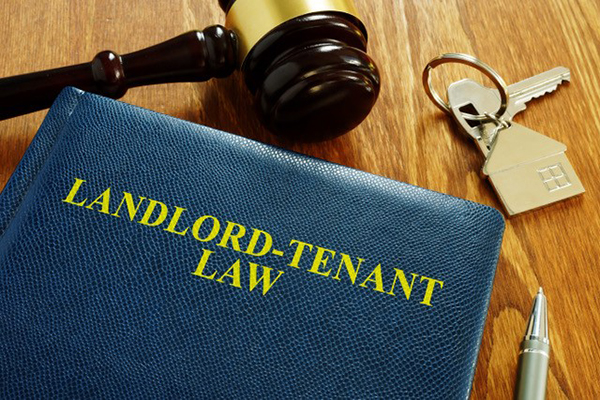Blog

Trusted Northwest Suburban Law Firm
847-944-9400
By Michael DeSantis
A newly enacted Cook County residential tenant-and-landlord ordinance includes Section 42-805, which focuses on various tenants’ rights that you should know.
Cook County commissioners voted unanimously on Jan. 28 to pass the Residential Tenant Landlord Ordinance (No. 20-3562), which goes into effect in June and has been the topic of our blogs in recent weeks. Section 42-805 is another area we will now cover because it is a part of the new ordinance that every renter and landlord in the county should know.
First, tenants will have the right to a disclosure of utility costs. A landlord should disclose to a tenant whether the landlord or tenant bears responsibility for the payment of utilities. If the tenant has to pay the utilities directly to the utility company; the service must be individually metered to that unit or property; and the landlord must disclose in the rental agreement the annual cost of that service from that utility company during the previous 12 months, if known. If the landlord doesn’t know the annual cost, they must disclose that information and be as specific as possible regarding why it is unknown.
If the rental agreement says the tenant must pay utility costs directly to the landlord and not directly to the utility company, then they must still disclose the annual cost of service for that utility during the previous 12 months. If the landlord did not own the unit during the previous 12 months or did not pay the utility costs to the provider during the previous 12 months, the landlord may provide the cost of service for a similar unit or disclose to the tenant that utility costs are unknown.
Next, when the landlord charges a move-in fee, which is currently common in lieu of a security deposit in Chicago, the landlord must provide the tenant with an itemized list of the landlord’s reasonable estimated costs that comprise the move-in fee. However, the landlord cannot charge a tenant for routine maintenance or upkeep of the premises.
The next section in this part of the ordinance incorporates requirements that are already a part of the Chicago Residential Landlord Tenant Ordinance regarding basic habitability requirements. Essentially, the landlord must comply with all municipal building code requirements and keep the property in a habitable condition, which is described in more detail in the ordinance. Further, the landlord shall maintain the temperature inside the dwelling unit to at least 68 degrees from 8:30 a.m.-10:30 p.m. and at least 66 degrees from 10:30 p.m.-8:30 a.m. from Sept. 15 to June 1 each year.
Tenants have the right to exclusive possession of the property. The ordinance specifies if the landlord fails to deliver possession of the unit to the tenant per the lease, then rent will abate until the landlord delivers possession, or the tenant may terminate the rental agreement upon written notice to the landlord, with a return of all security deposits within 48 hours. Or, if the tenant does not want to terminate the lease, they can demand performance by the landlord and sue for not getting possession of the property. The ordinance specifically allows the tenant to recover from the person withholding possession two-months-worth of rent, or twice the actual damages sustained, whichever is greater, plus attorney’s fees.
If the landlord makes an unlawful entry or lawful entry in an unreasonable manner, basically harassing the tenant, the tenant may sue to prevent this from happening in the future or terminate the rental agreement. Also, the tenant may recover two months of rent or twice the actual damages, whichever is greater, plus attorney’s fees.
Finally, the ordinance states a tenant has a one-time right, prior to the issuance of any eviction order, to cure the nonpayment of rent by paying the landlord all unpaid rent owed from the date of non-payment to the date of payment, plus all filing fees and court costs not including attorney’s fees. If the tenant pays this, then the court must vacate any eviction order and dismiss the case.
For more information or to help discuss your tenant-landlord dispute for a potential case, click on the free case evaluation button below.
